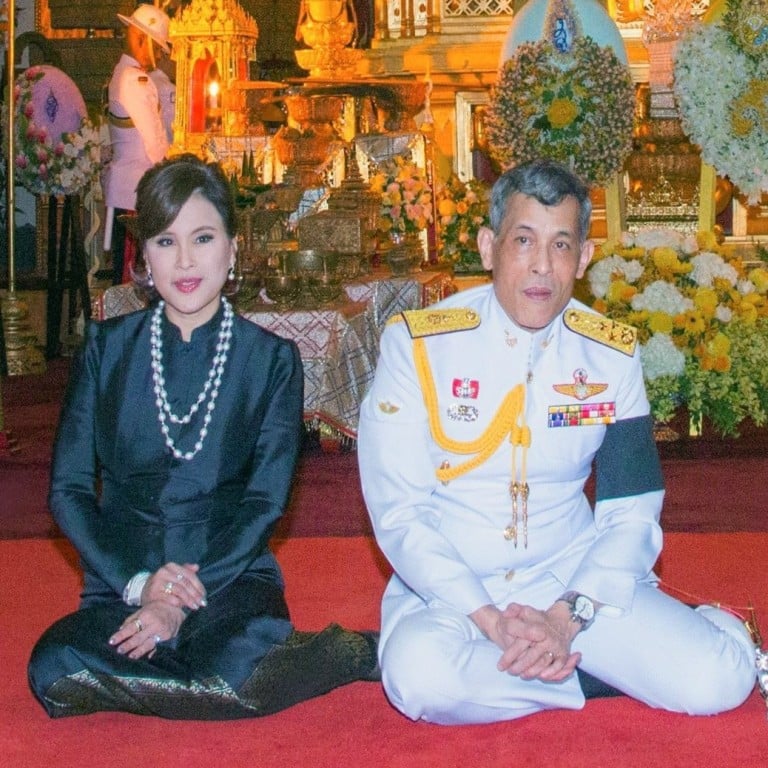
Thailand’s Princess Ubolratana Rajakanya seeking election as prime minister, turning campaign on its head
- No Thai royal has ever run for political office at the highest level
- She will run as the candidate for a party aligned with the exiled Shinawatras
The Thai Raksa Chart party, one of several parties aligned with the exiled former prime ministers Yingluck and Thaksin Shinawatra, said Princess Ubolratana – the older sister of King Maha Vajiralongkorn – had accepted its invitation to be the party’s prime ministerial candidate.
“She has agreed to be our candidate and given her experiences within Thailand and abroad, we believe she is the appropriate candidate,” the party’s leader Preechapol Pongpanich told reporters.
He added: “We play by the rules, everything we do complies with the law. There’s no privilege or exclusive right.”
The princess is not a member of the party and has not registered as a candidate, but the country’s newly enacted constitution allows for a prime minister who is not a lawmaker.
Ubolratana’s candidacy could upend the chances of Prayuth Chan-ocha, the current junta leader and prime minister, of retaining the prime ministership. He has been named as the candidate of the pro-junta Palang Pracharat party and he accepted their offer minutes after the princess declared she would run.
With no clear indication of whether the princess is protected by the country’s strict lèse-majesté laws – which severely prohibit commentary about the royals – local political observers were cautious when asked about the significance of her candidacy. The junta has a track record of actively enforcing the controversial law.
“I can only say we can expect to see less suppression by the [ruling junta] during the campaign period,” said Titipol Phakdeewanich, a political scientist at Ubon Ratchathani University.
He said the possibility of a national unity government – comprising the junta and the Shinawatra-linked parties – seemed unlikely.
No Thai royal has ever run for political office at the highest level. Under the country’s system of constitutional monarchy in place since 1932 – when absolute rule of the sovereign ceased – royals are deified and considered above party politics.
Parties linked to Thaksin Shinawatra, a policeman-turned-telecom tycoon, have triumphed in six elections held since 2001 but are reviled by the country’s royalist and urban elite. Their dominance has coincided with a decade of political turmoil in the country. The pro-elite military staged two coups in that period – in 2006 and 2014.
Facebook blocks foreign ads before Thai election amid fears junta will benefit
Thaksin Shinawatra was prime minister from 2001 until the first of those two coups in 2006, when he was also barred from politics and began his self-imposed exile. Two years later, he was sentenced in absentia to two years in prison for abuse of power – a ruling he said was politically motivated.
His brother-in-law Somchai Wongsawat briefly held the same position in 2008, and his sister, Yingluck, was premier from 2011 until the 2014 coup. Yingluck was sentenced to five years in jail last year over a failed rice subsidy scheme while she was prime minister.


